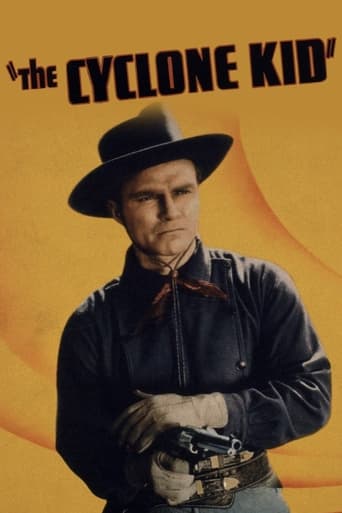
31 May 1942

The Cyclone Kid
A young doctor rejects his older outlaw brother Johnny who put him through medical school by dubious means. The brothers find themselves on opposite sides of a range war between homesteaders and a crooked cattleman.
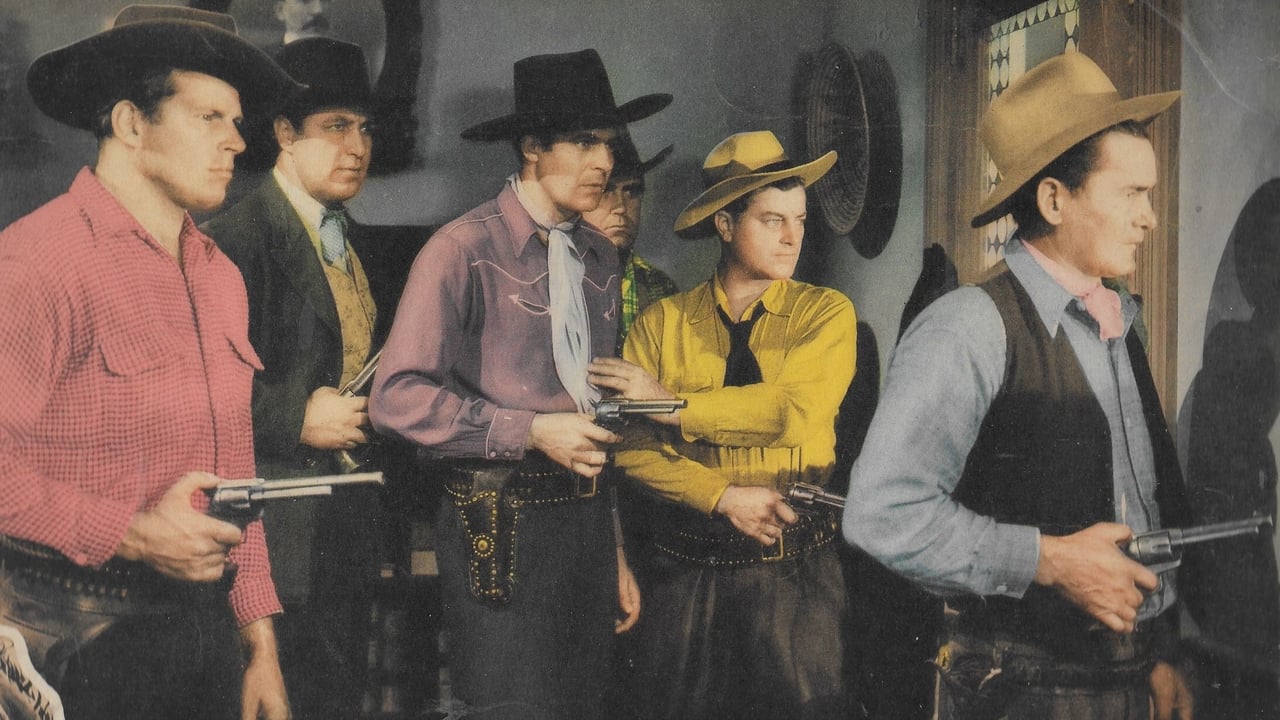
BULLETS BLAST THE BADLANDS!...as a two-gun terror blazes the Western trail of the Telegraph!
It is now an accepted fact that the best of Johnny Mack Brown's Universal westerns were directed by the talented Joseph H. Lewis. Boss of Hangtown Mesa may not be in the same league as the Brown-Lewis classic Arizona Cyclone, but it comes awfully close. This time around, hero Steve Collins (Brown) comes to the aid of Betty Wilkins (Helen Deverell), who has taken over the telegraph-line business established by her uncle John (Henry Hall). The latter was murdered by outlaws who don't cotton to having the territory linked up electronically with the rest of the world.

Steve Collins

Dr. J. Wellington Dingle

Judge Ezra Binns
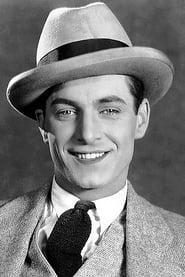
Bert Lawler
Betty Wilkins
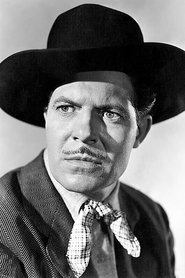
Utah Kid
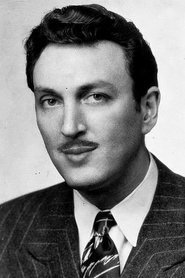
Flash Hollister

Lawyer Clint Rayner

John Wilkins

Henchman Clem
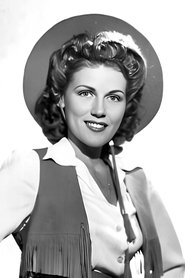
Work Camp Singer

31 May 1942

A young doctor rejects his older outlaw brother Johnny who put him through medical school by dubious means. The brothers find themselves on opposite sides of a range war between homesteaders and a crooked cattleman.

15 Dec 1951

Not to be confused with the 1929 film The Overland Telegraph, this Western from director Lesley Selander stars Tim Holt as a cowboy appropriately named Tim Holt. In order to hinder the construction of a new telegraph line for his own financial gain, scheming shopkeeper Paul Manning (George Nader) enlists the assistance of a gang of outlaws led by Brad Roberts (Hugh Beaumont in one of his many pre-Leave it to Beaver roles). Unfortunately for the bad guys, Holt and his cohort Chito Rafferty (Richard Martin) sense that there's foul play afoot and embark on an investigation.
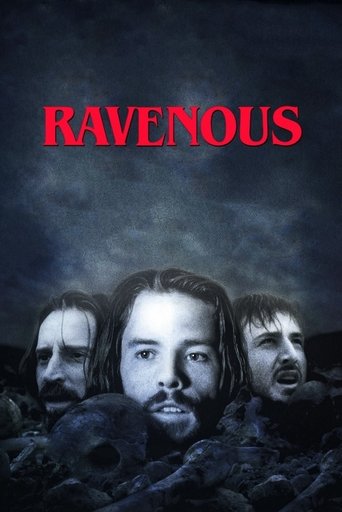
16 Mar 1999

Upon receiving reports of missing persons at Fort Spencer, a remote Army outpost on the Western frontier, Capt. John Boyd investigates. After arriving at his new post, Boyd and his regiment aid a wounded frontiersman who recounts a horrifying tale of a wagon train murdered by its supposed guide – a vicious U.S. Army colonel gone rogue. Fearing the worst, the regiment heads out into the wilderness to verify the gruesome claims.
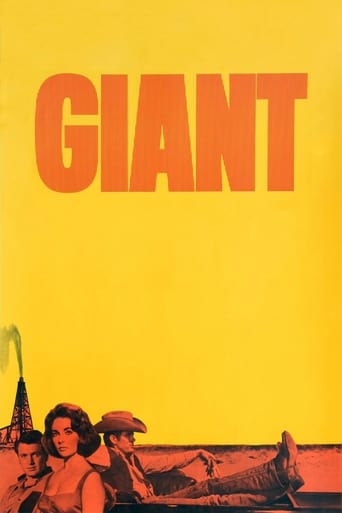
08 Nov 1956

Wealthy rancher Bick Benedict and dirt-poor cowboy Jett Rink both woo Leslie Lynnton, a beautiful young woman from Maryland who is new to Texas. She marries Benedict, but she is shocked by the racial bigotry of the White Texans against the local people of Mexican descent. Rink discovers oil on a small plot of land, and while he uses his vast, new wealth to buy all the land surrounding the Benedict ranch, the Benedict's disagreement over prejudice fuels conflict that runs across generations.
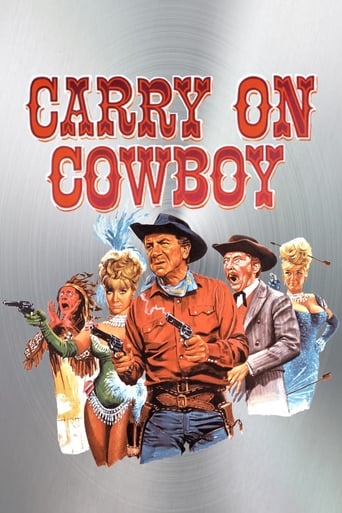
26 Nov 1965

Stodge City is in the grip of the Rumpo Kid and his gang. Mistaken identity again takes a hand as a 'sanitary engineer' named Marshal P. Knutt is mistaken for a law marshal. Being the conscientious sort, Marshal tries to help the town get rid of Rumpo, and a showdown is inevitable. Marshal has two aids—revenge-seeking Annie Oakley and his sanitary expertise.

12 Apr 1968

Marshall Jed Cooper survives a hanging, vowing revenge on the lynch mob that left him dangling. To carry out his oath for vengeance, he returns to his former job as a lawman. Before long, he's caught up with the nine men on his hit list and starts dispensing his own brand of Wild West justice.
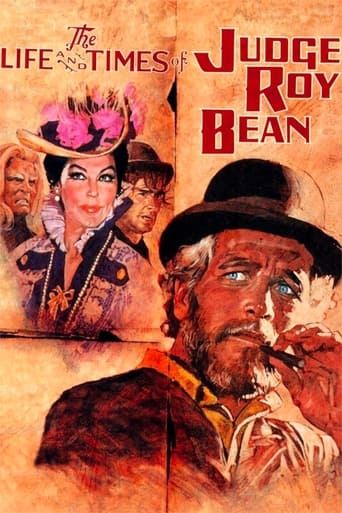
18 Dec 1972

Outlaw and self-appointed lawmaker Judge Roy Bean rules over an empty stretch of the West that gradually grows, under his iron fist, into a thriving town, while dispensing his his own quirky brand of frontier justice upon strangers passing by.
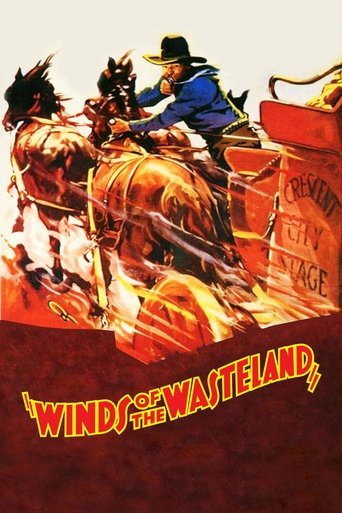
06 Jul 1936

The arrival of the telegraph put Pony Express riders like John Blair and his pal Smoky out of work. A race will decide whether they or stageline owner Drake get the government mail contract.
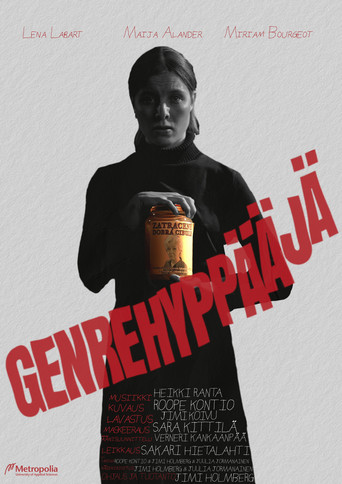
29 Feb 2024

A young filmmaker accidentally claps her idol’s mystical clapperboard, throwing the two on a frantic journey through film genres and beyond.
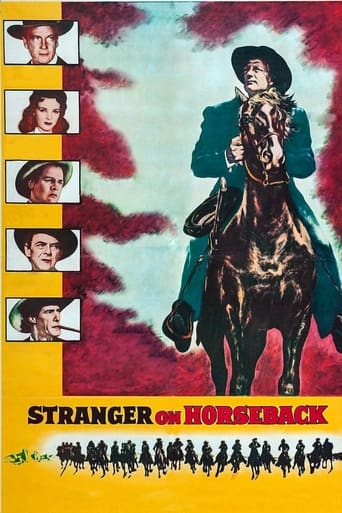
22 Mar 1955

A circuit judge in the old west attempts to bring a suspected killer to justice. The judge runs afoul of the killer's rich cattle baron father in the process.
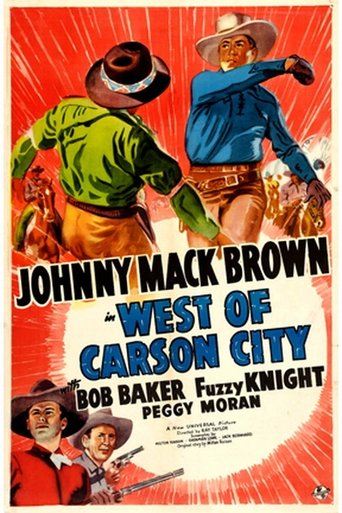
19 Jan 1940

West of Carson City remains one of the best of Johnny Mack Brown's Universal westerns. The story takes place in a gold-rush community where the locals are taken to the cleaners by duplicitious Eastern gamblers. When it becomes obvious that the local constabulary has been "bought off" by the crooks, two-fisted cattleman Jim Bannister (Brown) swings into action. The film's highlight is an outsized fistic brawl between the hero and secondary villain Breed, played by loose-limbed comic stuntman Frank Mitchell.
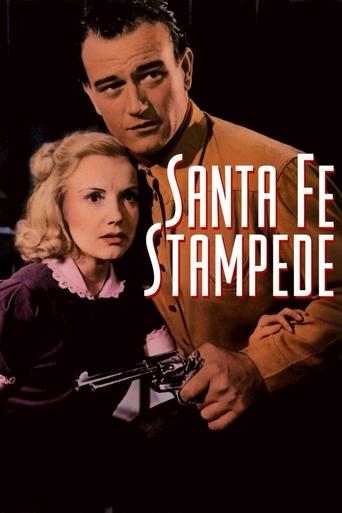
18 Nov 1938

The Mesquiteers capture a horse thief who escapes justice through a crooked judge. They gather signatures urging the governor to investigate but a friend with the petition is murdered. Stony is accused.
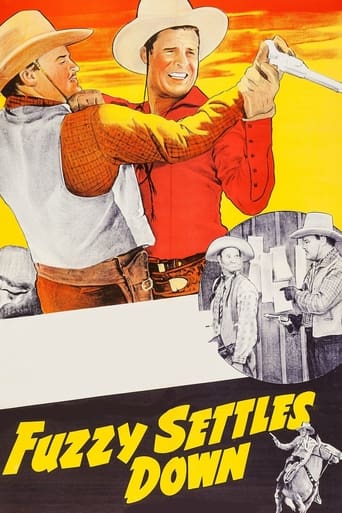
25 Jun 1944

Billy Carson and Fuzzy Jones have just collected a reward and Fuzzy indulges in a dream of getting away from the hectic life he has been leading and wants to settle down. They arrive in Red Rock just as the newspaper is being sold at foreclosure and, despite the attempts by Lafe Barlow to intimidate him from bidding. Fuzzy finds himself the owner of a newspaper. Fuzzy meets Edith Martin, daughter of the former owner, and unthinkingly commits himself to carrying on her father's policy of bringing a telegraph line to Red Rock. For reason of his own, Barlow is against this and has his henchmen wage a campaign of terror against the ranchers and citizens. Before long, Billy who had been lazily indifferent to everything connected to Fuzzy and his newspaper, decides to take a hand on the side of the good guys.
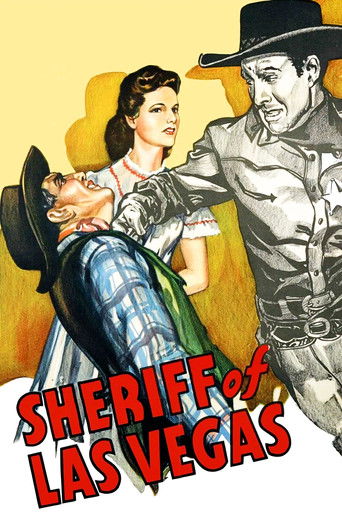
31 Dec 1944

In this western, brave Red Ryder and his sidekick save a murdered judge's son from going to jail by proving that someone else killed his father.
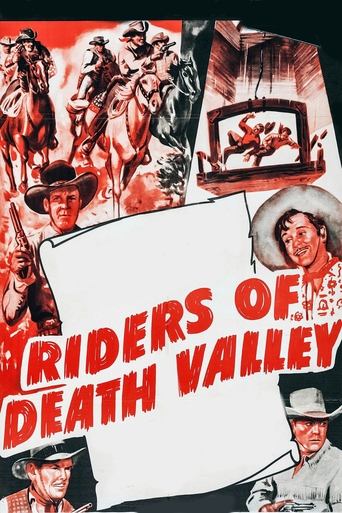
01 Jul 1941

The Saturday matinee crowd got two cowboy stars for the price of one in this lavishly budgeted western serial starring former singing cowboy Dick Foran and Buck Jones. The latter contributed deadpan humor to the proceedings, making Jones perhaps the highest paid B-western comedy relief in history. The two heroes defend the Death Valley borax miners from an outlaw gang headed by Wolf Reade. An extraordinarily strong cast -- for a serial, at least -- supported the stars, headed by Charles Bickford as Reade, Leo Carillo, Lon Chaney, Jr., and silent screen star Monte Blue. Leading lady Jeanne Kelly later changed her name to Jean Brooks and starred in the atmospheric RKO thriller The Seventh Victim (1943). Universal claimed to have spent $1 million on this serial and made sure to get their money's worth by endlessly recycling the action footage in serials and B-westerns for years to come.
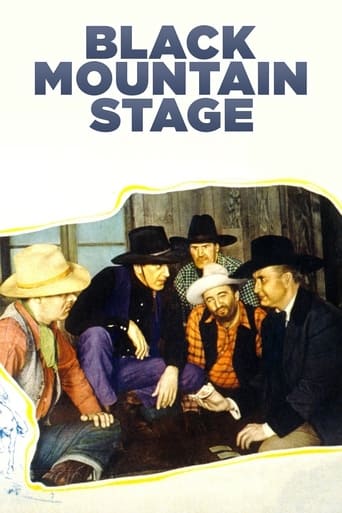
11 Nov 1940

Marshal Tim Donovan has been sent to investigate a series of holdups. Posing as a card sharp he soon believes he knows who is tipping off the outlaws. So he sets up a fake shipment knowing that if the stage is robbed the contact person will be identiifed. But the day the stage is due the Sheriff arrests the gang Tim was expecting to do the robbery.
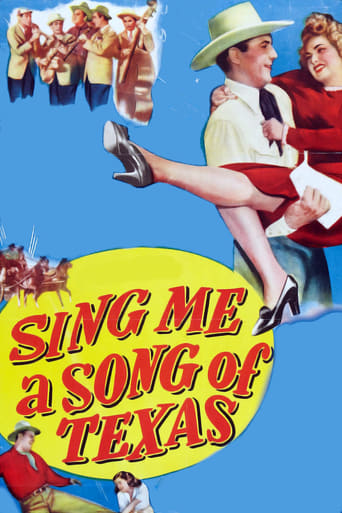
08 Feb 1945

The two nieces of the deceased Charley Bronson arrive to learn that an unknown judge will determine which one of them will inherit his ranch. But Bronson is still alive and posing as the cook. Hilda learns of this and sets out to use this information to win the ranch from her cousin Laurie.
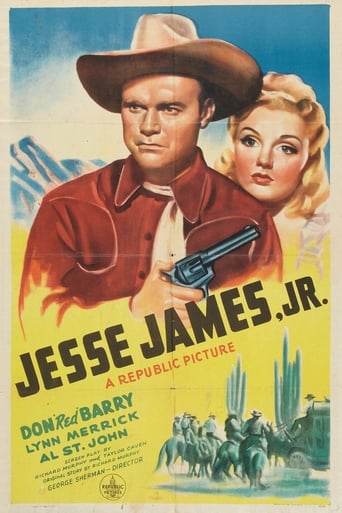
25 Mar 1942

Though Don "Red" Barry is the star of Jesse James, Jr., he plays a character named Johnny Barrett. The scene is a small western town, lacking telegraph service. Every time the locals try to set up communications with the Outside World, they are thwarted by an outlaw gang.
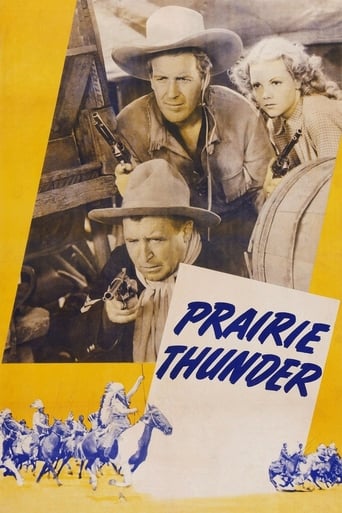
10 Sep 1937

To increase profits for his shipping company, Lynch has goaded the Indians to attack both the telegraph line and the new railroad. When Lynch sells rifles to the Indians, Rod Farrell captures Lynch and his gang. But Lynch's Indian friends free him and this time Farrell finds himself the prisoner.
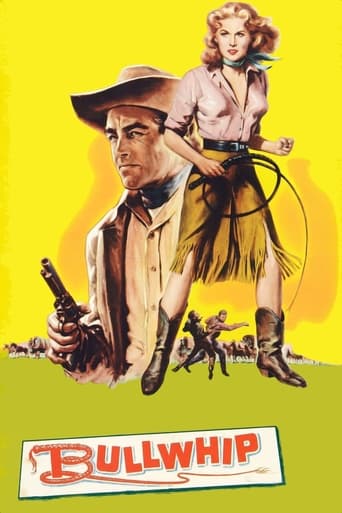
25 May 1958

In order to avoid the hangman's noose, a cowboy agrees to marry a beautiful but fiery redhead.